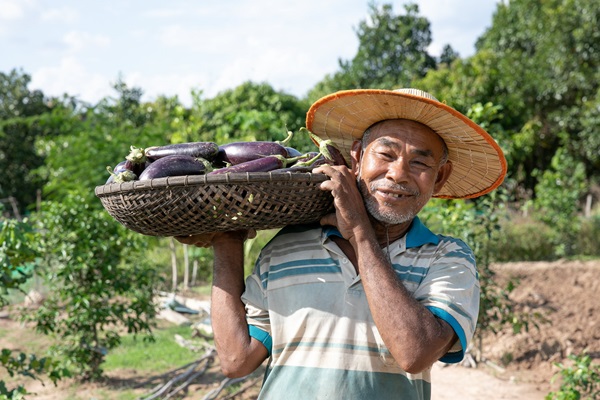China
News

Transforming agrifood systems requires changing policies, mindsets, and business models
18/01/2023

Leveraging science and innovation for food loss and waste reduction
26/10/2022

Investment opportunities and legislation frameworks on FLW. Some relevant FAO resources are available
30/08/2022
Food loss and waste (FLW) is a global burden with a negative impact on the economic, social, and environmental dimensions of sustainable development. The loss and waste of food suitable for human consumption hampers food security and nutrition and hinders the realization of the human right to ...
Articles
Leveraging food waste for electricity: A low-carbon approach in energy sector for mitigating climate change and achieving net zero emission in Hong Kong (China)
01/02/2024
In recent years, food waste has been a global concern that contributes to climate change. To deal with the rising impacts of climate change, in Hong Kong, food waste is converted into electricity in the framework of low-carbon approach. This work provides an overview of the conversion of food was...
Assessing nutritional and economic aspects of food loss and waste in China
30/11/2023
Addressing FLW requires comprehensive data to adequately prioritize its reduction and evaluate the effectiveness of the interventions. However, the nutritional and economic losses associated with FLW in China are poorly understood. We used multiple indicators to assess FLW in China from nutritional and economic perspectives and conducted a scenario analysis of the benefits of its reduction.
The impact of refrigeration on food losses and associated greenhouse gas emissions throughout the supply chain
29/05/2024
One-third of food produced globally is wasted while approximately 800 million people suffer from hunger. Meanwhile, food losses produce approximately 8% of total anthropogenic greenhouse gas (GHG) emissions. This study develops a food loss estimation tool to assess how improved access to the cold chain could impact food loss and its associated GHG emissions for seven food types in seven regions.
Events
29/ 11
2023
Masterclass 2023 | Food loss and waste: the basics.
Virtual Event, 29/11/2023
This interactive webinar will be the first of a series of webinars on the subject of food loss and waste (FLW). It will introduce and discuss the basics of food loss and waste.
Projects
| Title | LEG - Action plan for food loss and waste reduction |
|---|---|
| SDG(S) |
Publications

Food Loss and Waste in China: Status Quo, Policies and Actions - policy brief
30/11/2021
Already since 2014, FLW reduction has received high-profile attention in China. It has been included in national agenda setting and policy formulation and China has implemented a series of suitable actions. In April 2021, the Anti-Food Waste Law was passed.

FAO Regional Strategy on Food Loss and Waste Reduction in Asia and the Pacific
30/06/2022
FAO is well positioned as a global knowledge leader on food loss and waste and many of the other regions already have a tailored regional strategy on FLW reduction. In reponse to the last two APRC's as well as in line with the ZHC, and more recently the new FAO Strategic framework, this publication provides a basis for FAO and others to understand the scope and depth of FLW issues, how these can be addressed, including some good practices from Thailand, China and Nepal.

Asia and the Pacific – Regional Overview of Food Security and Nutrition 2022
15/03/2023
This is the fifth edition of the Asia and the Pacific Regional Overview of Food Security and Nutrition annual report. In recent years, previous editions reported that progress was stalling, then regressing and then more recently pushing us further off track. This reverse was evident even before the COVID-19 pandemic took hold in 2020. The decline continued and worsened during the pandemic and the data is captured in this report.
Multimedia
Turning waste into value. Fish silage by fermentation
19/09/2024
Fish silage is a liquid product made from fish parts that are liquefied through the action of natural enzymes in the fish, in the presence of an added acid.
The FAO-Thiaroye Processing Technique
18/09/2024
An innovative fish smoking and drying method, designed to enhance product quality and safety while minimizing environmental impact. The FTT kiln, made from locally available materials, uses firebricks and waste materials, minimizing deforestation.
Achieving Better Nutrition in Asia-Pacific by reducing food loss and waste – leaving no one behind
13/06/2022
This video looks at an example of achieving better nutrition in Malaysia through reductions of food loss and waste.
How to tackle food loss and waste
14/10/2019
Although there may be an economic loss, food diverted to other economic uses, like animal feed, is not considered as food loss or waste, nor are the inedible parts of food products.
